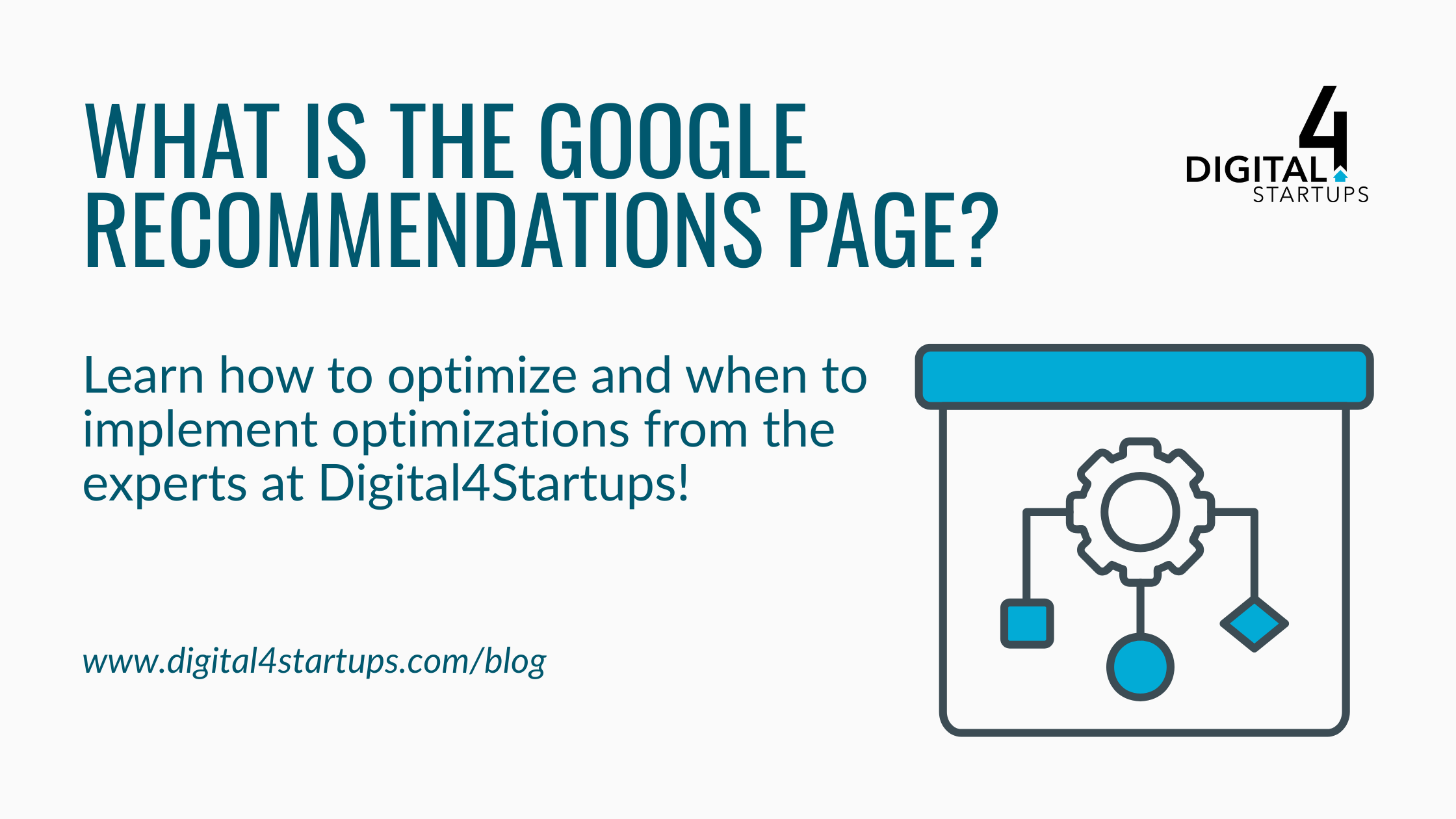
What is the recommendations page? How to optimize and when to implement optimizations
Whether you’ve been using Google Ads for a while or you’re just starting, you might have come across the Recommendations Page. On that page, Google offers recommendations and tailored suggestions aimed to boost campaign efficiency and enhance overall performance.
If you’re looking to improve your strategy or explore different features in Google Ads, understanding how to utilize the Recommendations page effectively can make a significant difference.
In this blog post, we’ll explore how to use the Recommendations page and provide tips to increase your Optimization Score.
What is the Recommendations Page?
The Recommendations page uses Google’s algorithms to analyze your account’s performance and provide tailored recommendations for various areas. Those areas include keyword targeting, ad copy, bidding strategies, and more.
The page provides a consolidated list of optimization opportunities, ranked by their potential impact on your account. Some examples of recommendations you might encounter include adjusting your budget, adding negative keywords, refining targeting settings, or updating ad creatives.
By acting on these suggestions, you can increase your optimization score and potentially enhance your conversion goals.
Should You Follow All the Recommendations?
While the Recommendations page can be helpful, not all suggestions are necessary or beneficial for every account. Evaluate each recommendation carefully before implementing it and prioritize those addressing underperformance or inefficiency.
Reflect on your campaign goals first, then consider whether the recommendation aligns with your objectives. Some suggestions may also go against your broader account strategy or long-term goals.
If none of the recommendations apply to your business and/or capabilities, then you can dismiss them. Dismissing recommendations can automatically increase your optimization score which helps when your current campaign performance is doing well.
Lastly, you should always test your changes incrementally and then measure their impact. Following a recommendation that doesn’t result in better performance can waste your budget and effort.
What is your Optimization Score?
The Optimization Score at the top of the recommendations page is a metric in Google Ads that reflects how well your account is optimized based on Google’s recommendations. It’s expressed as a percentage, with a higher score indicating better alignment with Google’s best practices.
When trying to increase your optimization score, you should focus on recommendations likely to have a high impact on performance. Those include improving your keyword relevance, adding negative keywords, or adjusting bidding strategies.
Google Ads recommends using automated bidding strategies, such as Target CPA or Target ROAS, to optimize your bids in real time. However, these strategies don’t always guarantee an increase in your optimization score.
Whatever bidding strategy you choose, make sure it aligns with your campaign goals and that you have enough data before implementing a smart bidding strategy.
Tips to increase your Optimization Score
Before accepting any recommendations on the corresponding page, go into your settings and ensure your campaigns are correctly set up. Follow Google’s best practices, which include adjusting targeting settings, adding relevant ad extensions, and ensuring that your ad copy aligns with user search intent.
When setting up your Google Ads account, keep it well-structured with clearly defined campaigns, ad groups, and targeted keywords. This will make sure you’re keeping your Google Ads account organized so that when you want to follow any of the recommendations, you’ll know where to find everything.
Another tip to keep a consistent optimization score is to update your ads regularly. This might include going through the search term report and adding negative keywords, refreshing your ad copy, or rotating and testing different ad variations.
Lastly, regularly audit your account to remove underperforming keywords or ads. If you want to create better engagement, create a habit of doing this every week.
Should you turn on automatic recommendations?
If you don’t want to be constantly checking in on your optimization score every week, Google has introduced a new feature that auto applies recommendations. Google says that by opting in to auto recommendations, you can focus more on strategic initiatives while Google’s AI is regularly implementing best practices to your account.
If you leave this feature on, you can still maintain control and select recommendations automatically. Choosing to apply recommendations automatically also won’t increase your budget.
According to Google, there are five key benefits of applying recommendations automatically. Those include scaling Google’s best practices, improving performance, boosting efficiency, controlling visibility, and not increasing your budget.
If you do opt into auto-applying recommendations, you can still track which ones are enabled in the History tab of the Recommendations page. You should also occasionally review automatically applied recommendations in this tab.
You can see how often a recommendation has been applied in the past week, when it was last applied, and when you first opted in. You can also opt out at any time.
Conclusion
Google Ads’ Recommendations page is a powerful tool that provides valuable insights into ways to improve your campaigns. However, it’s essential to use these recommendations wisely, focusing on those that align with your goals, performance, and account strategy.
By optimizing your account and increasing your Optimization Score, you’ll be in a better position to achieve stronger results and more efficient advertising. Remember, not all recommendations are created equal, so always evaluate and test before applying them to ensure they are beneficial for your specific needs.
If you have any questions about the recommendations page or Google Ads in general and want to schedule a consultation, please email info@digital4startups.com.
